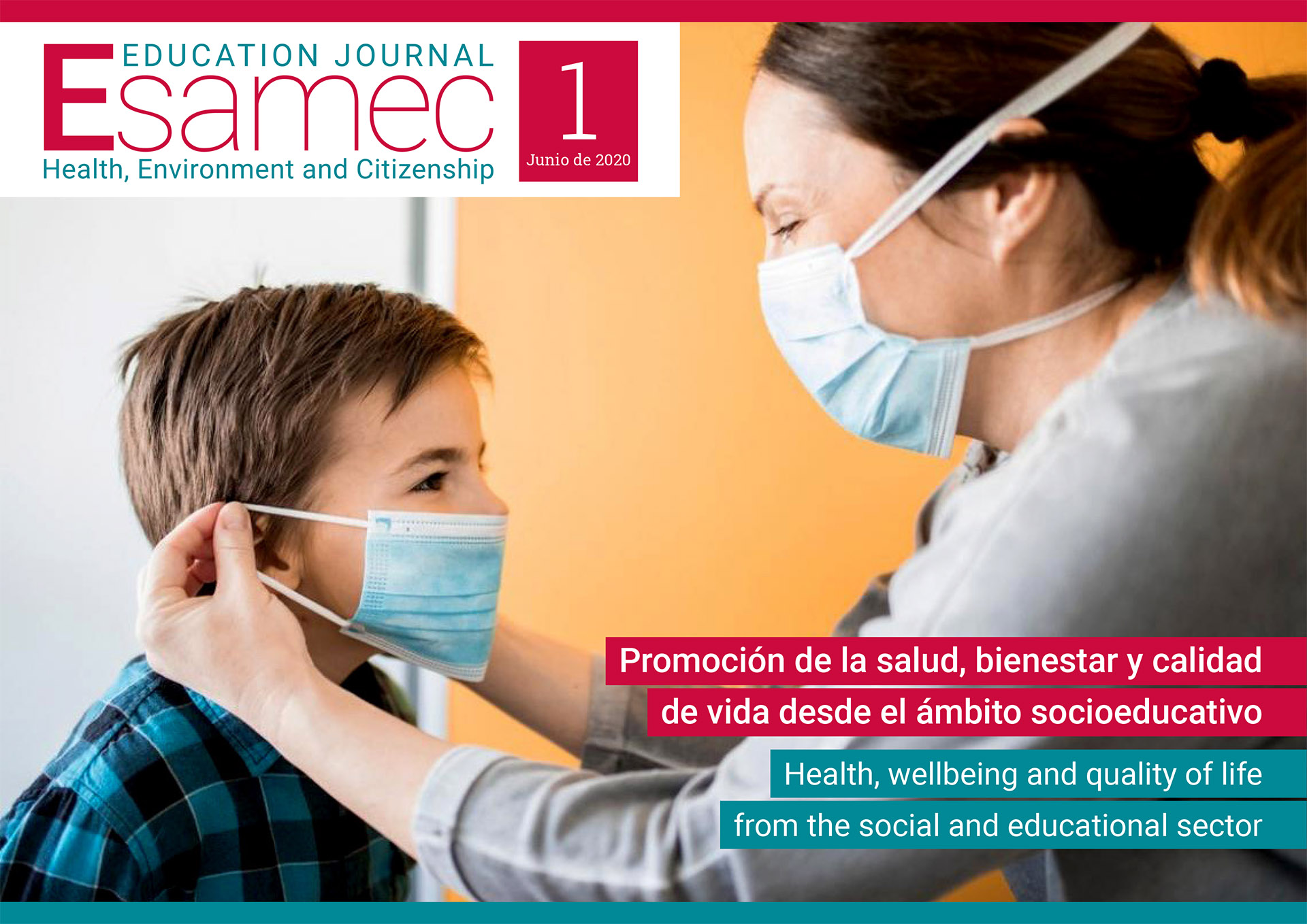Salud y duelo en el proceso migratorio
Resumen
El proceso migratorio conlleva una serie de factores de riesgo que derivan en la reproducción de problemas de salud y que están en íntima relación con el duelo migratorio. Desde el ámbito de la Educación Social es importante incidir en este tipo de carencias y adaptar actuaciones transversales que se correspondan con verdaderas iniciativas de Educación Emocional, dándole el reconocimiento a la profesión y dejando de lado el intrusismo laboral que en ocasiones queda relevado a figuras profesionales como son: médicos/as y psicólogos/as. Esto se convierte en un reto que debe ser trabajado por y para el bienestar emocional y social de la persona que ingresa en cualquier tipo institución. Con esta investigación se pretende evidenciar las carencias dentro del ámbito de intervención social con personas inmigrantes, así como observar el verdadero impacto que tiene el proceso migratorio en estas personas, capaz de desarrollar verdaderos problemas de salud mental. El colectivo seleccionado se corresponde con personas refugiadas dentro de la Primera Fase de Acogida de la Comisión Española de Ayuda al Refugiado (Sevilla). La muestra queda acotada en un total de 10 personas, 5 profesionales que trabajan en la institución anteriormente mencionada y 5 usuarios/as de ésta. La metodología se compone de entrevistas semiestructuradas, observaciones participantes durante el período de prácticas universitarias y del desarrollo de un análisis documental acorde con el problema de investigación. La recogida de toda la información pertinente para nuestra investigación, nos hace conscientes de que, dentro de la Primera Fase de la Comisión Española de Ayuda al Refugiado, existen carencias a la hora de trabajar con la Salud y el Duelo en el Proceso Migratorio.
Descargas
Citas
Achotegi, J. (2002). “La depresión en los inmigrantes”, en: Una perspectiva transcultural. Barcelona, Editorial Mayo.
Achotegi, J. (2005). “La crisis como factor agravante del síndrome de Ulises (síndrome del duelo migratorio extremo.” Conferencia Foro Social Mundial de las Migraciones, Madrid, España.
Achotegi, J. (2006). “Estrés límite y salud mental: el síndrome del inmigrante con estrés crónico y múltiple (Síndrome de Ulises)”. Revista Norte de salud mental de la Sociedad Española de Neuropsiquiatría. Volumen V, Nº 21. Pp. 39-53.
Boixareu, R. M (2008): “De la antropología filosófica a la antropología de la salud”. Barcelona. Herder. 1ª Edición. Pp. 205-213. Centro de Investigaciones Sociológicas 2008.
Collazos, F., Qureshi, A., Antonín. M. y Tomás-Sábado, J. (2008) “Estrés aculturativo y salud mental en la población inmigrante” Programa de Psiquiatría Transcultural. Papeles del Psicólogo Vol. 29(3), pp. 307-315, Barcelona.
Denzin, N.K. (1970): Sociological Methods: a Source Book. Aldine Publishing Company. Chicago.
Engel, G.L (1980): “The clinical application of the biopsychosocial model”. Am J Psychiatry. (137): 535–544.
Fuertes, C., Martín, M. A. (2006). “El inmigrante en la consulta de atención primaria”. Navarra Vol. 29, Suplemento 1 9 (p.9-19). Recuperado el día 23 de noviembre de 2018: http://scielo.isciii.es/scielo.php?script=sci_arttext&pid=S1137-66272006000200002,
García, A. C. (1993). Análisis documental: el análisis formal. Revista general de información y documentación, 3(1), 11.
Hernández, F. (2007). Los efectos psicológicos de la migración – entrevista con el psicólogo. Recuperado el día 11 de noviembre del 2018 de: http://www.infocop.es/view_article.asp?id=1557,
López, A. (2006). “La mitad de los inmigrantes sufre depresión o ansiedad a los dos años de su llegada.” Periódico 20 minutos. Recuperado el día 25 de noviembre de 2018 de: http://www.20minutos.es/noticia/173263/0/inmigrantes/ansiedad/depresion/#xtor= AD-15&xts=467263, acceso el 25 de mayo de 2015.
Martínez.R., A. (2007). La observación y el diario de campo en la definición de un tema de investigación. Perfiles Libertadores. Institución Universitaria Los Libertadores, pg.74-80.
Monje, C. (2011). Metodología de la investigación cuantitativa y cualitativa. Neiva: universidad surcolombiana, 113.
Ochoa Mangado, E., Vicente Muelas, N., Lozano Suárez, M. (2005). Síndromes depresivos en la población inmigrante. Rev. Clin. Esp; 205:116-8 - Vol. 205 Num.3 DOI: 10.1157/13072968
Organización Mundial de la Salud (OMS). Concepto de salud. Recuperado el 5 de octubre de 2018 de: https://www.who.int/es
Sánchez Márquez, H. y López Miguel, M. J. (2008). “Ansiedad y modos de aculturación en la población inmigrante”.Revistacuatrimestraldepsicología, Vol. 26, número 3, pp.399-410. Universidadde Sevilla.
Sierra Bravo, R. (1984). Ciencias Sociales, Epistemología, Lógica metodología, Madrid: Paraninfo.
Vega Pascual, M. J. (1996). Fases de la intervención social con refugiados. Alternativas.Cuadernos de Trabajo Social. N. 4 pp. 155-181.
Descargas
Publicado
Cómo citar
Número
Sección
Licencia
Derechos de autor 2020 La Universidad de Sevilla se reserva todos los derechos sobre el contenido de las revistas científicas editadas por ésta. Los respectivos textos no pueden ser utilizados, distribuirse, comercializarse, reproducirse o transmitirse por ningún procedimiento informático, electrónico o mecánico con ánimo de lucro, directo o indirecto, ni tampoco incluirse en repositorios ajenos, sin permiso escrito de la Editorial Universidad de Sevilla. Podrán ser usados y citados para fines científicos y referenciados sin transformación para usos académicos, indicándose en todo caso la autoría y fuente, pudiendo para ello remitir al correspondiente enlace URL de Internet.

Esta obra está bajo una licencia internacional Creative Commons Atribución-NoComercial-SinDerivadas 4.0.
En caso de su aceptación, autorizo a la revista ESAMEC a incluir mi nombre y apellidos, ORCID, así como mi filiación institucional y, en su caso, mi dirección de correo electrónico, en todos los documentos relacionados con la publicación del artículo que se somete a evaluación. Asimismo garantizo la autoría y originalidad del artículo, y asumo la plena y exclusiva responsabilidad por los daños y perjuicios que pudieran producirse como consecuencia de reclamaciones de terceros respecto del contenido, autoría o titularidad del contenido del mismo.
Todos los contenidos de esta revista se distribuyen bajo una licencia de uso y distribución “Creative Commons Atribución-NoComercial-CompartirIgual 4.0 Internacional”. Puede consultar desde aquí la versión informativa y el texto legal de la licencia. Esta circunstancia ha de hacerse constar expresamente de esta forma cuando sea necesario.





